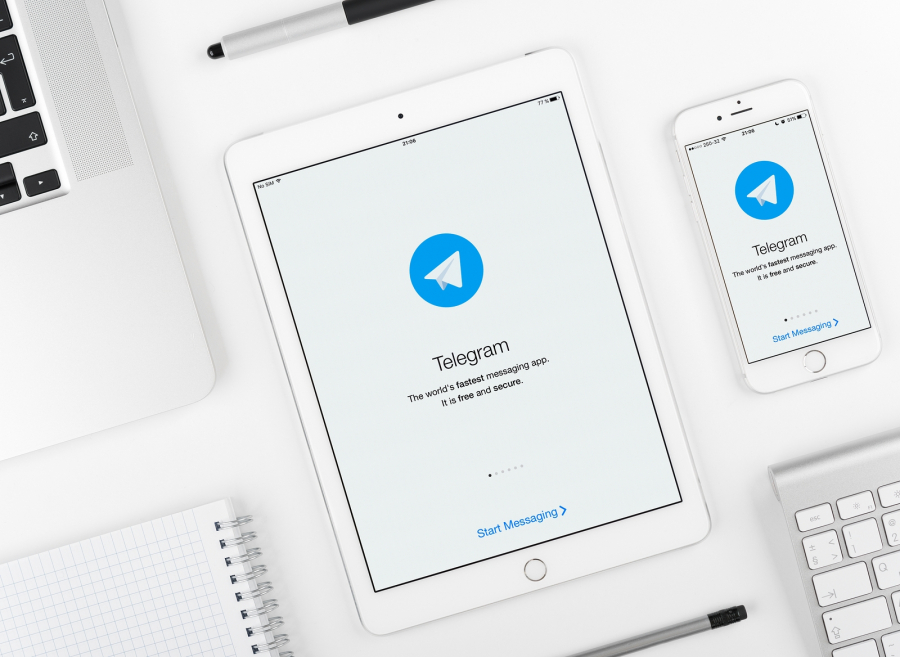Encrypted texting apps such as WhatsApp, Telegram, Confide, Signal, and many more have recently demonstrated growth in popularity, as well as in public controversy.
These "secret messaging" apps are a move away from archivable email and phone call communications, which the NY Times notes poses a problem to regulated industries where record-keeping is standard. However, in an era of global cyber-hacking, it is no surprise that people feel more comfortable with encrypted texting technology over traditional communication methods.
Encrypted texting apps mean that data does not live on servers and messages are automatically deleted, a format that helped social media platform Snapchat

On Wall Street, these apps have been particularly notorious. According to a report by Bloomberg, this past January Deutsche Bank
The White House has also been subject to pressure on banning such apps. Last month, the watchdog group Citizens for Responsibility and Ethics in Washington filed a lawsuit against the Trump administration and its staffers for widely using these apps. This form of communication is said to ignore public record transparency laws, according to NPR. The worst reputation for these apps, however, comes in the form of terrorist communications. According to the Washington Post, these apps, particularly Telegram, have been found as the prime form of communication for plotting terrorist attacks, making it "the app of choice for many ISIS, pro-ISIS and other jihadi and terrorist elements." Though dedicated to user privacy, Telegram has stated they have a no tolerance policy for extremism and have allegedly blocked more than 5,000 groups associated with extremism this year.

On the contrary, many still advocate for these apps as a vital tool for political coordination and social activism. Edward Snowden was an early endorser of the app Signal, and protest organizers of Black Lives Matter support that the apps protect them from FBI surveillance. The Verge also reports that advisors to advocacy groups like Planned Parenthood and Race Forward have begun to adopt the technology as a barrier against hacking from political opponents. Amnesty International, one of the world's largest non-governmental organizations, recently released this statement: "Our communications are under constant threat from cybercriminals, malicious hackers, and unjustified spying by state authorities. Young people, activists and journalists who share personal details over messaging apps are especially at risk." The organization calls for end-to-end encryption as a default communication setting for technology companies. They rate apps such as WhatsApp as highly secure, while they view apps such as Snapchat as only giving an illusion of security.
The future of these apps is somewhat unclear, as a result of both increasing popularity and increasing industry regulations on the very technology. However, the inclination to download these apps by regular citizens does indeed seem to be booming. Last May, when a Brazilian judge temporarily outlawed the use of WhatsApp during a time of political protest, the download rate of another app, Orbot, immediately increased by 24%, according to The Verge. In America, this app has also seen a 30% rise in downloads since the Trump election. At this time, there are numerous options in technology for people to feel secure in their communications, and this will only increase with time.
- https://www.bloomberg.com/news/articles/2017-01-13/deutsche-bank-is-banning-text-messages-on-company-issued-phones
- https://www.nytimes.com/2017/07/06/business/as-elites-switch-to-texting-watchdogs-fear-loss-of-transparency.html
- http://www.npr.org/sections/thetwo-way/2017/06/22/533977417/trump-sued-for-allegedly-violating-presidential-records-act
- https://www.washingtonpost.com/world/europe/as-russia-targets-internet-anonymity-law-enforcement-says-extremists-planned-a-deadly-bombingusing-an-encrypted-chat-app/2017/06/26/f942e648-5a83-11e7-8e2f-ef443171f6bd_story.html?utm_term=.fe61ae312dc9
- https://www.theverge.com/2017/1/12/14244634/signal-app-secure-messaging-trump-surveillance-encryption
- https://www.amnesty.org/en/latest/campaigns/2016/10/which-messaging-apps-best-protect-your-privacy/
- https://techcrunch.com/2016/12/14/symphony-the-messaging-app-backed-by-wall-st-is-raising-at-a-1b-valuation/














